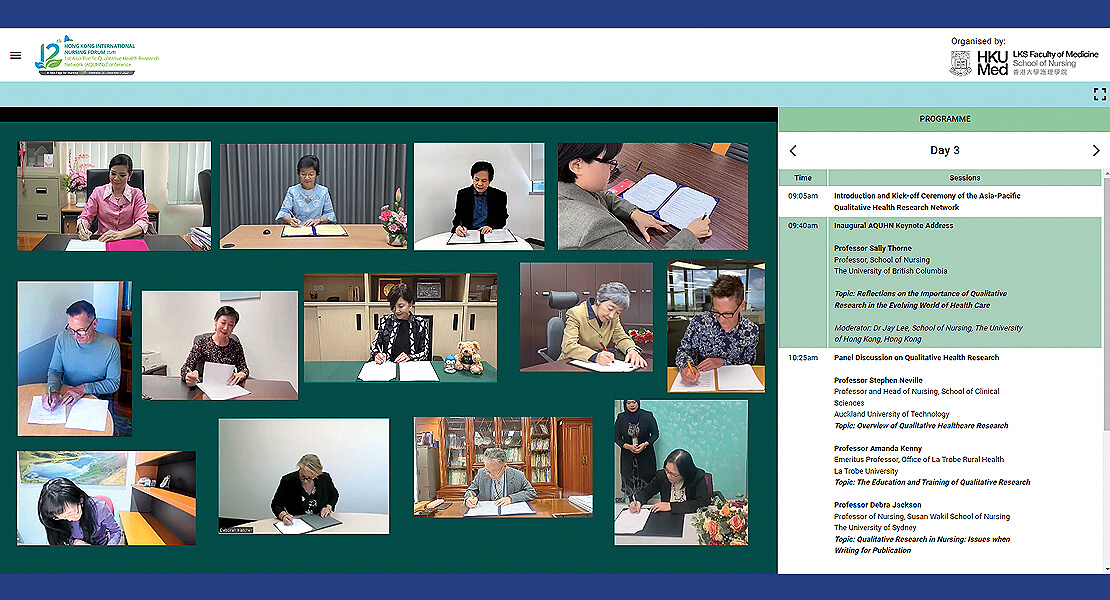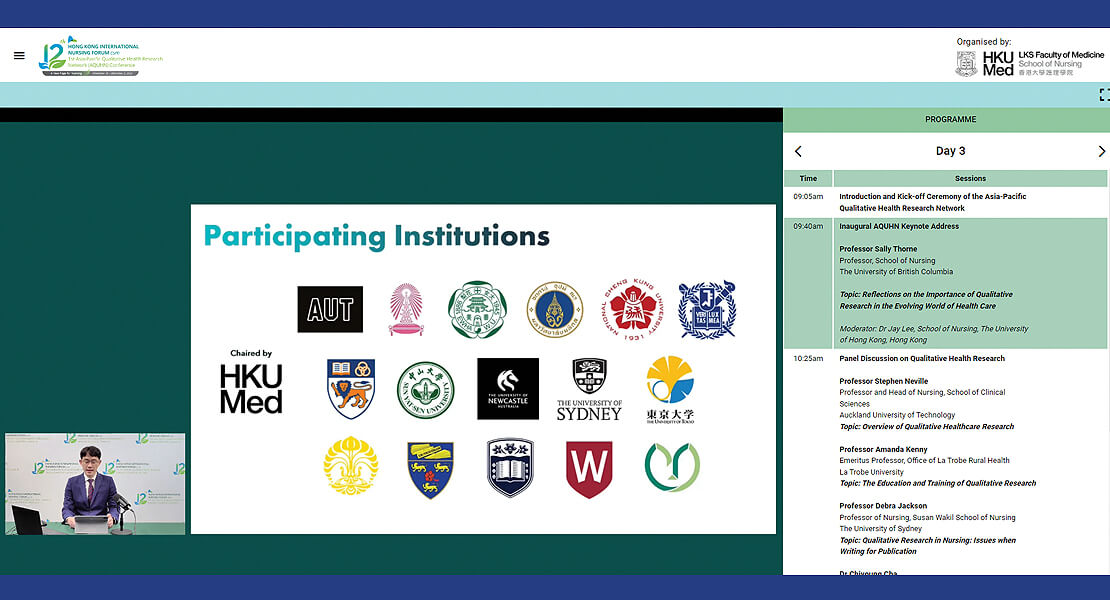
Research
New Network Promotes Qualitative Health Research
Dr Jay Lee Jung-jae (Left) | Assistant Professor
Dr Hye-ri Choi (Right) | Postdoctoral Fellow
Much has been said about the merits of big data and quantitative research, but this is not the only path to gleaning valuable knowledge. In fact, qualitative research offers a rich opportunity to explore the ‘why’ and ‘how’ questions of social phenomena using a naturalistic, interpretative approach. To promote qualitative research, HKU School of Nursing has taken the lead to establish the first Asian-Pacific Qualitative Health Research Network (AQUHN).
Launched in December 2022, AQUHN connects qualitative health researchers in Asia-Pacific, but is also open to scholars beyond the region. It has two primary goals: 1) enhance understanding and knowledge of qualitative research; and 2) facilitate the rigorous development of qualitative research design among academics, clinicians and students who have an interest in healthcare research in the region.
The timing is important given the drive for more and more qualitative research being seen not only in the region and around the world. But just what distinguishes qualitative from quantitative research?
Quantitative research is founded on the positivist paradigm and seeks to identify objective reality, while qualitative research focuses on contextualised reality as it is perceived and expressed through an individual’s narrative and behaviour (i.e., subjectivity in reality). Qualitative researchers commonly use individual interviews, focus group interviews and observations to collect data and understand participants’ perceptions and interpretations of issues and phenomena that are socio-culturally shaped.
For healthcare professionals, this approach is especially useful because it can offer insights on healthcare practice and knowledge on the ground. In fact, there are inherent similarities between qualitative research and healthcare practice, including the emphasis on a person-centred approach, the examination of both individual and holistic perspectives, consideration of contextual factors, acknowledgement of individual variations, and the facilitation of meaningful human interactions.
Qualitative research has been on the rise in healthcare disciplines, despite initial criticisms from the positivist-dominated research landscape. However, there remain concerns about the rigour of the methods. One of the problems is the insufficient provision of qualitative research education and training for students, which can have later knock-on effects on research quality.
It is in light of these concerns that the AQUHN has been formed. HKU School of Nursing will host a series of training workshops for members and aim to instil best practices for teachers and trainers. As of June 2023, 17 universities from 11 Asia-Pacific countries and territories had signed up to our network, acknowledging the importance of this initiative. We look forward to expanding and elevating the AQUHN to benefit healthcare research across the region.


